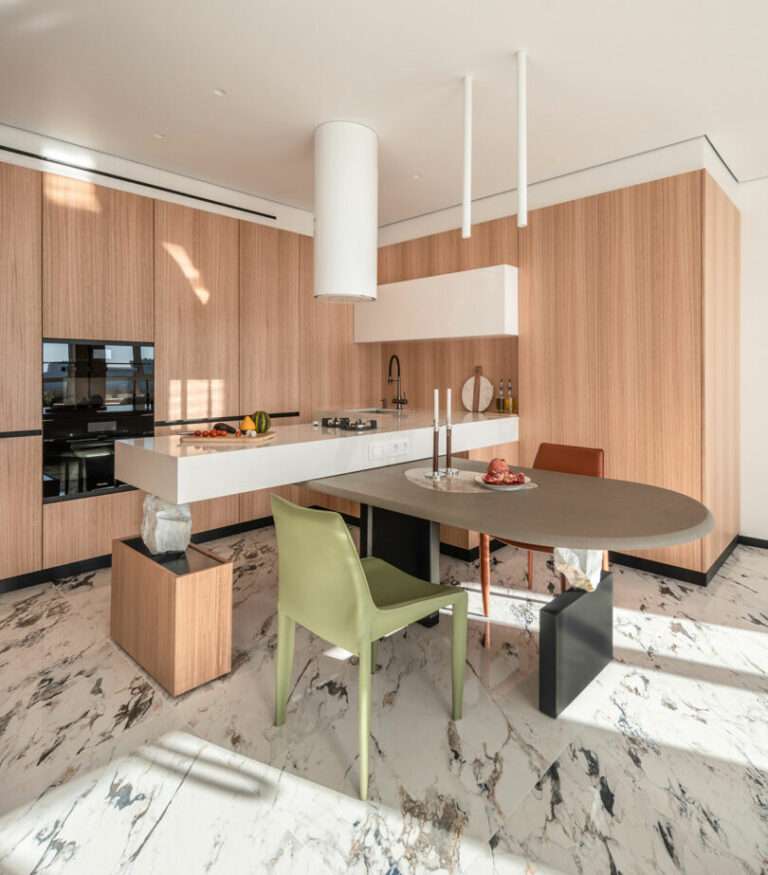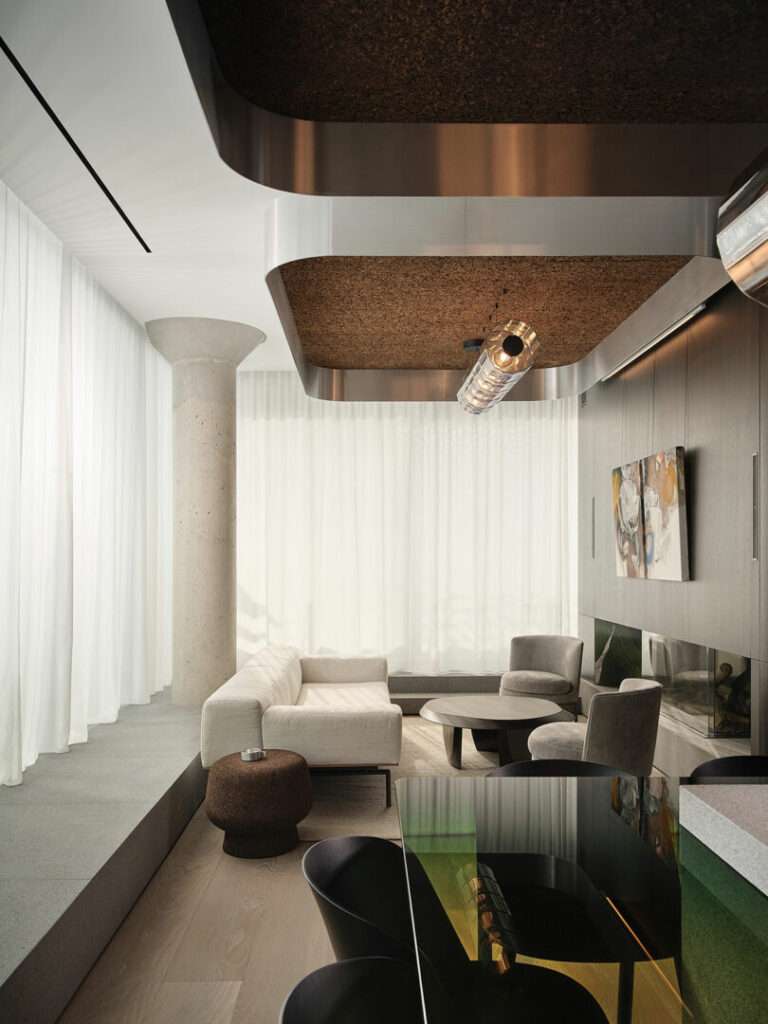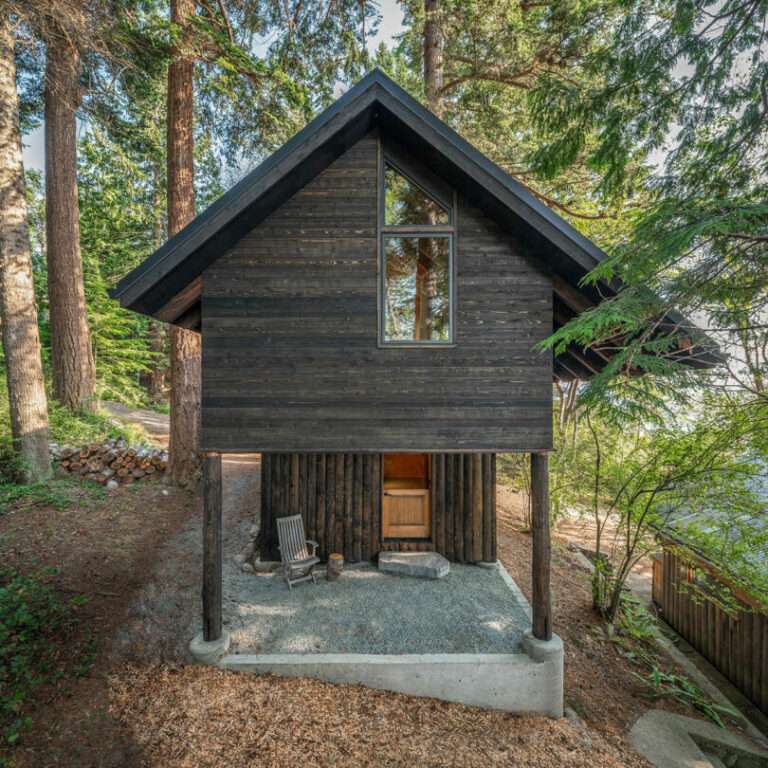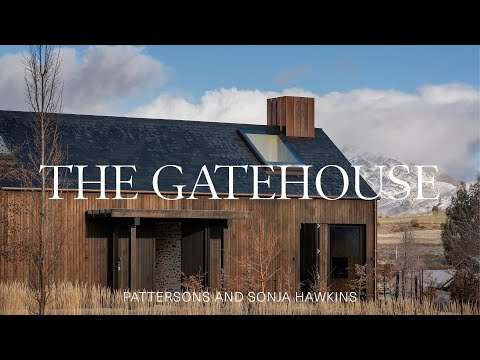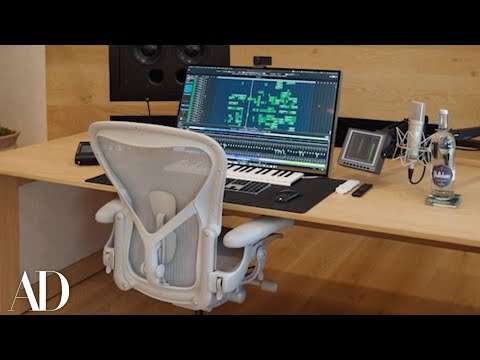Yukari House is a Japanese-inspired home in nature that develops relationships between residents, their home and the surrounding environment. While reimagining an existing structure, Tanev Muir Architects emphasises the day-to-day rituals that determine the character of a space.
Located at the end of a leafy street in Byron Bay, the Japanese-inspired home in nature adjoins the Arakwal National Park. “The park feels ancient when you look at it; it’s full of life and birds and wallabies pass through. It is a very special place and it requires a reflective space,” says Laura Muirhead, architect at Tanev Muir Architects. The design firm encourages reflection by crafting nuanced rooms that allow residents to linger in the moments between activities. “The philosophy of the project balances between shadow and light,” says Peter Tanevski, architect at Tanev Muir Architects. “It can’t easily be characterised as a space that is modernist, open plan and has nowhere to hide, and at the same time it can’t be characterised as being cavernous.”
Expressing a measured approach to interiors, Yukari House is a Japanese-inspired home in nature that comprises a series of rooms both connected and partitioned using joinery. “Rather than open or closed, on or off, we wanted the joinery and the partitions in Yukari House to have a constantly active state,” says Tanevski. In the main living area, the television is concealed inside a timber cabinet with a sliding door, highlighting the movement between conditions as a valuable part of life. Elsewhere, an automated composite glazing system – in which a blind can drop to mitigate heat in summer – features internal timber reveals.
“The kitchen was the most important aspect to our client,” says Muirhead. “We moved the kitchen to the centre of the home; this was integral to its new role housing a space for collaboration, coming together and cooking shared meals.” To enable the clients to face their guests while cooking, a fine, spotted gum table is slotted directly into a monolithic stone island. Positioned in the centre of the space at bar level, the table not only accommodates seated dinners but allows the greatest number of people to circulate the kitchen-dining area.
Throughout the Japanese-inspired home in nature, considered materials and forms are used to enhance spatial function. In the reconfigured bathroom, a modest, rectangular bathtub contributes to a calming environment that speaks to the Japanese concept of bathing. In Japan, completing the bathing ritual can achieve both physical cleanliness and spiritual rejuvenation, and to this end, the Yukari House bathroom is serene. A semi-extruded, stainless-steel basin evoking the image of Kiyomasa’s Well reinforces the Japanese character of the space. Outside, a circular bathtub echoes the curves found in nature and, with a view of the treetops, offers a more open bathing experience.
“I think Australian architecture is changing from a quantitative space – where we talk about the amount of things that are in a house – and we’re shifting to a dialogue which celebrates the qualities and emotional capacity of architecture and space,” says Tanevski of the Japanese-inspired home in nature. “I hope this house is part of that lasting legacy and is a contributor to that change.”
00:00 – Introduction to the Japanese-inspired Home
00:44 – The Philosophy of the Project
01:38 – A Walkthrough of the home
02:36 – Key Design Aspects and Details
04:42 – The Ritualistic Nature of Bathing
05:35 – Incorporating Japanese Culture
06:04 – Creating a lasting legacy
For more from The Local Project:
Instagram – https://www.instagram.com/thelocalproject/
Website – https://thelocalproject.com.au/
LinkedIn – https://www.linkedin.com/company/the-local-project-publication/
Print Publication – https://thelocalproject.com.au/publication/
Hardcover Book – https://thelocalproject.com.au/book/
The Local Project Marketplace – https://thelocalproject.com.au/marketplace/
For more from The Local Production:
Instagram – https://www.instagram.com/thelocalproduction_/
Website – https://thelocalproduction.com.au/
LinkedIn – https://www.linkedin.com/company/thelocalproduction/
To subscribe to The Local Project’s tri-annual print publication see here – https://thelocalproject.com.au/subscribe/
Photography by Aaron Chapman.
Architecture, interior design and styling by Tanev Muir Architects.
Filmed and edited by HN Media.
Production by The Local Production.
Location: Byron Bay, New South Wales, Australia
The Local Project acknowledges the Aboriginal and Torres Strait Islander peoples as the Traditional Owners of the land in Australia. We recognise the importance of Indigenous peoples in the identity of our country and continuing connections to Country and community. We pay our respect to Elders, past and present and extend that respect to all Indigenous people of these lands.
#Japanese #Home #Nature
